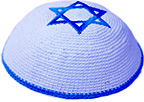All of our lives have been irrevocably changed as a result of October 7. The lives we thought we enjoyed before have had the veneer ripped away, and we are in a new and strangely familiar place as a people of history.
As many of you know, I am planning a trip to Israel with a few of my colleagues from the Philadelphia region through the generous support of the Jewish Federation of Greater Philadelphia. Our purpose is to learn, bear witness, and bring home the stories of what is happening to the people of Israel. We will start in Tel Aviv, and we will move South, meeting with families of the kidnapped, hostages, and others whose lives around the envelope have been changed forever.
I do not know what I will encounter. And I say that as someone who is struggling here in the Diaspora and as someone committed to the Jewish state. We have complex and conflicting moral issues to try and understand. It is like threading the eye of a tiny needle. Our tradition is well-versed in parsing, probing, and understanding how we maintain our values even when those values are challenged in the most extraordinary ways. But we have enjoyed the opportunity to study those texts, not live them in real-time, and here in lies the real challenge of what it means to understand what is going on Jewishly.
I will share the lessons I will learn and some wisdom that I hope will come from these experiences. But I will at least bear witness.
I have been asked repeatedly if I am nervous or scared about my trip to Israel, and I do have trepidation, but it’s not the trepidation of being physically hurt. It is the trepidation of everything that I have held dear, of everything that I have worked for, of everything that I believe in, being tested in a way that I never thought would be imaginable today.
The virulent Jew-hatred we believed was part of our history is now being expressed publicly and shamelessly; that is frightening.
I am privileged to know many people of Goodwill, and so many of them have reached out in this fraught time to offer their support and love. But there are so many others who have remained silent and too many others who have let their antisemitism erupt into the public space. We can no longer pretend that Jew-hatred does not affect us. It does, and we must now decide whether we stand for what we claim to believe and fight for those values and ideals.
I pray for the people of Israel, I pray for my Jewish brothers and sisters both there and here, and I pray for peace. Perhaps these things may come more quickly than the all-too-elusive Messiah. It is up to us to hasten their coming.

